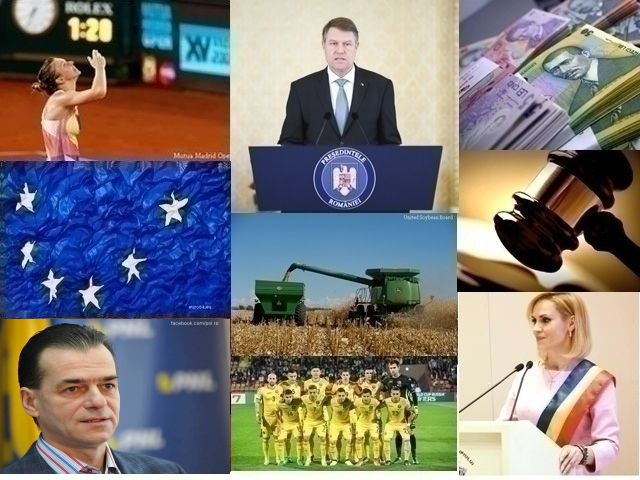September 6-12, 2020
A review of the most important events of the past week.

Newsroom, 12.09.2020, 14:00
The Covid-19 epidemic in Romania
More than 100,000 confirmed infections and over 4,000 deaths have been reported in Romania since the start of the coronavirus pandemic. Against this background, the Health Ministry will propose the extension of the state of alert in the country, by another 30 days, Health Minister Nelu Tataru has announced. Romania has been in a state of alert since mid-May. Minister Tataru says a difficult month lies ahead because of the local elections on September 27 and the start of the school year. President Klaus Iohannis said in a news conference on Wednesday that the decision to reopen schools on September 14 was not easy but was necessary. Thursday was the deadline for a final decision on how classes would unfold during the new school year in every Romanian school. The Government has supplemented the funds alloted to education by around 20 million euros from the reserve fund, to finance the national programme “Education in a Safe Environment”. The money will be spent on laptops, sanitation materials and electronic devices, such as webcams and tablets, so that classes can also be held online if the epidemiological situation worsens.
Annual meeting of Romanian diplomacy, held in video-conference format
The annual meeting of the Romanian diplomatic service has for the first time been held online, in Bucharest. Among its special guests were the EU high representative for foreign affairs and security policy Josep Borrell, NATO deputy secretary general Mircea Geoana and the foreign ministers of Ukraine, Spain and South Korea. In their message to the participants in the conference, President Klaus Iohannis, PM Ludovic Orbana and Foreign Minister Bogdan Aurescu highlighted the fact that the Romanian foreign policy preserves its main coordinates but also adjusts to global developments. The main coordinates of Bucharests foreign policy, namely consolidating the countrys role within NATO and the EU and its strategic partnership with the United States, remain unchanged. NATO deputy secretary general Mircea Geoana emphasized that Romania is a vital member of NATO and plays the role of “regional pillar” with respect to defense and deterrence of threats to NATO. In his turn, the EU high representative for foreign affairs and security policy Josep Borrell said in his address that the European Union must come out stronger from the crisis generated by the pandemic. We must continue to work together in a more strategic and integrated way, to develop a common European response to wider geopolitical challenges and trends, Borrell also said. The situation in Belarus was also on the agenda of the meeting. Foreign Minister Bogdan Aurescu expressed his indignation at the policy of harassment and detainment of the members of the Belarusian opposition and called for the observance of the human rights. Aurescu said that the Romanian Ambassador in Minsk visited on Wednesday, alongside colleagues from the EU, one of the representatives of the Belarusian opposition, writer Svetlana Aleksievich, the winner of a Nobel prize in literature. He explained that the purpose of the visit was to make sure that human rights were respected. On Wednesday, on the last day of the meeting, Aurescu announced that a guide of reactions to crises and management of future crises was drawn up. The document will be sent to all Romanian diplomatic missions.
Effects of the economic crisis
Romania s GDP went down in the second quarter by more than 12% as against the first quarter, the National Statistics Institute has announced. This result was generated by all economic sectors, in particular industry (-14%). However, constructions, the IT&C sector, public administration, defense, public social insurance, education, healthcare and social assistance had positive contributions to the GDP. Finance Minister Florin Citu says Romanian economy will report limited growth in the third quarter and thus avoid technical recession, that is two consecutive quarters of GDP decrease. The National Statistics Institute has also announced that Romania’s GDP stood at almost 10 billion euros in the first seven months of the year, up over 480 million euros as against the same period of 2019. Imports and exports have both went down as against the January-July period of 2019, by 16.2% and 12.2% respectively.
Romanian football, in good shape
Romanias national side leads the Nations League Group 1B after managing to defeat Austria 3-2 in an away match and a 1-all match with Northern Ireland at home. Norway is also part of the group. Romania will be up against Iceland in the European Championships play-off semi-finals. If it qualifies, Romania will play the winner of the match between Hungary and Bulgaria. Romanias youth selection secured a 3-nil away win against Malta in group 8 of the preliminaries of the European Under-21 Football Championship. Romania ranks second in the group, after Denmark. (Translated by Elena Enache)



























